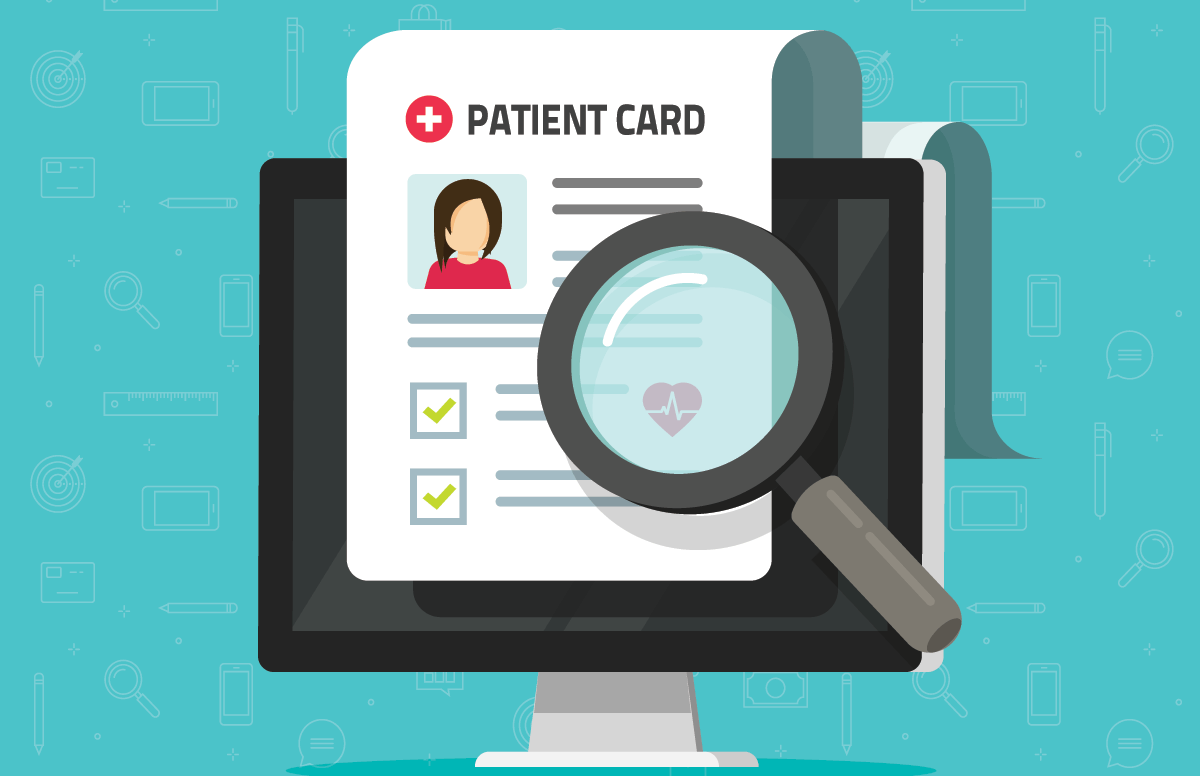Patients Struggle to Get Their Medical Records
A study of 83 hospitals discovers new barriers to exercising this right
(This article appeared previously in Kaiser Health News.)

Medical records can be hard for patients to get, even in this digital information age. But they shouldn’t be: Federal law guarantees that people have a right to see and obtain a copy of their medical records.
New evidence of barriers to exercising this right comes from a study of 83 leading hospitals by researchers at Yale University. Late last year, researchers collected forms that patients use to request records from each hospital. Then, researchers called the hospitals and asked how to get records, the cost of doing so, how long it would take, the format in which information would be sent and whether the entire record would be available.
Researchers didn’t disclose they were conducting an academic study; instead, they posed as a relative asking questions on behalf of a grandmother who needed her records before seeking a second opinion. Family members make such requests on behalf of older relatives every day.
What Hospitals Said When Asked About Medical Records
Hospitals’ answers were inconsistent: In many cases, the information on forms didn’t match what researchers were told on the phone. Sometimes their answers violated federal or state legal requirements.
Notably, only 53 percent of hospitals’ forms indicated patients could get their complete records. This right was acknowledged in all the phone calls. Forty-three percent of hospital forms didn’t disclose the estimated cost of obtaining records, as required. In phone calls, all but one hospital disclosed costs, but 59 percent cited a higher-than-government-recommended fee for electronic records.
“The unfortunate truth is that the system doesn’t give patients reliable or consistent responses. And some people who work in medical records departments appear to be ignorant of the law and the rights that patients have,” said Dr. Harlan Krumholz, co-author of the study and professor of medicine, epidemiology and public health at the Yale University School of Medicine.
What the Law Says
Under a groundbreaking law, the Health Insurance Portability and Accountability Act of 1996 (HIPAA), patients have a right to get some or all of their medical records upon request. (Psychotherapy notes can be excluded.) Hospitals, medical clinics, physician practices, pharmacies and health insurers are required to make this information available within 30 days (sometimes a 30-day extension can be granted), at a reasonable cost and in the format that patients request (for instance, paper copy, fax, electronic copy or CD), if possible.
Research suggests that reviewing medical records can be beneficial. People are more likely to follow treatment recommendations, remember what happened at medical visits and feel engaged in their care when they have access to this information, studies indicate.
But HIPAA requirements are often misunderstood.
Jacqueline O’Doherty, a geriatric care manager with Health Care Connect LLC of Califon, N.J., encountered this last month when she tried to see records for an 80-year-old client who was being transferred from a hospital to a nearby rehabilitation facility after suffering acute respiratory distress.
Although the older woman had signed a form appointing O’Doherty as a “designated representative” — a status that should have allowed O’Doherty access to her clients’ records — a hospital nurse refused to let O’Doherty check the client’s lab results, medication list and discharge summary.
It was only when an infectious-disease doctor intervened, citing the need for continuity of care, that O’Doherty was able to review her client’s records.
“It really depends on the institution, what they will and won’t let you do,” O’Doherty said.
Large Volume of Complaints on Records' Cost and Access
After receiving a large volume of complaints about records’ cost and accessibility, the Office for Civil Rights of the U.S. Department of Health and Human Services, issued new guidelines in January 2016. For electronic records, the guidelines prohibit per-page charges and recommend a maximum cost of $6.50 for consumers. They also clarify patients’ right to have records sent to third parties, including family members or professionals advocating on their behalf.
Despite these protections, the forms used to request records aren’t standardized and can be confusing.
Often it’s not clear what is being offered. “As a person who works in the health care system, even I had trouble understanding the forms and what I could request based on the options listed,” said Carolyn Lye, a medical and law student at Yale who did much of the legwork for the new study.
Problems may be even more common at physician practices, which often don’t have medical records departments. When GetMyHealthData, a campaign to expand access to digital health information, asked consumers about their experience, people described poorly informed or unhelpful staff, high fees, long waits and frustrating bureaucratic processes, among other barriers.
“People are being told ‘No I can’t give this to you’” because office staff, nurses and doctors “don’t know what they can or cannot do,” said Pamela Lane, vice president of policy and government relations for the American Health Information Management Association.
Why Electronic Patient Portals Don't Solve the Problem
Electronic patient portals don’t solve the problem yet: Most contain limited information and don’t currently include a way for patients to request records such as the notes physicians take during patient visits. “We’re slowly moving in that direction, but we’re not there yet,” said Catherine DesRoches, executive director of OpenNotes, an organization devoted to making doctors’ and nurses’ notes more readily available to patients.
The government is making improved electronic access to medical records a priority through its new MyHealthEData Initiative, announced earlier this year. Full details of the initiative are not yet available.
But Seema Verma, administrator of the Centers for Medicare & Medicaid Services, has repeatedly called for people with Medicare coverage to have better access to their records. In an unusual move, she spoke out on Twitter about the Yale study, calling its findings “not acceptable.”
What to Do if You Run Into Problems
What can people do if they encounter problems like those documented by the Yale researchers?
If your hospital or doctor’s office declines to make your records available, print out materials about your rights and use them to advocate on your behalf. “Tell staff, ‘I’m entitled to a copy of my records: This is my legal right, as explained here,’” Lane said.
A good resource is a model medical records release form created by the American Health Information Management Association last year, which people can copy and bring with them to help make their case, Lane said. A summary of your right to share medical information with family, friends or other authorized third parties can be found here.
To familiarize yourself with your overall rights, see this “Guide to Getting & Using Your Health Records” published by the government’s Office of the National Coordinator for Health Information Technology. And take a look at the “Get Your Data” section of the GetMyHealthData website, which includes a clear summary of your rights, how to request your medical records, and troubleshooting suggestions if you encounter obstacles. A helpful two-page summary is available here.


